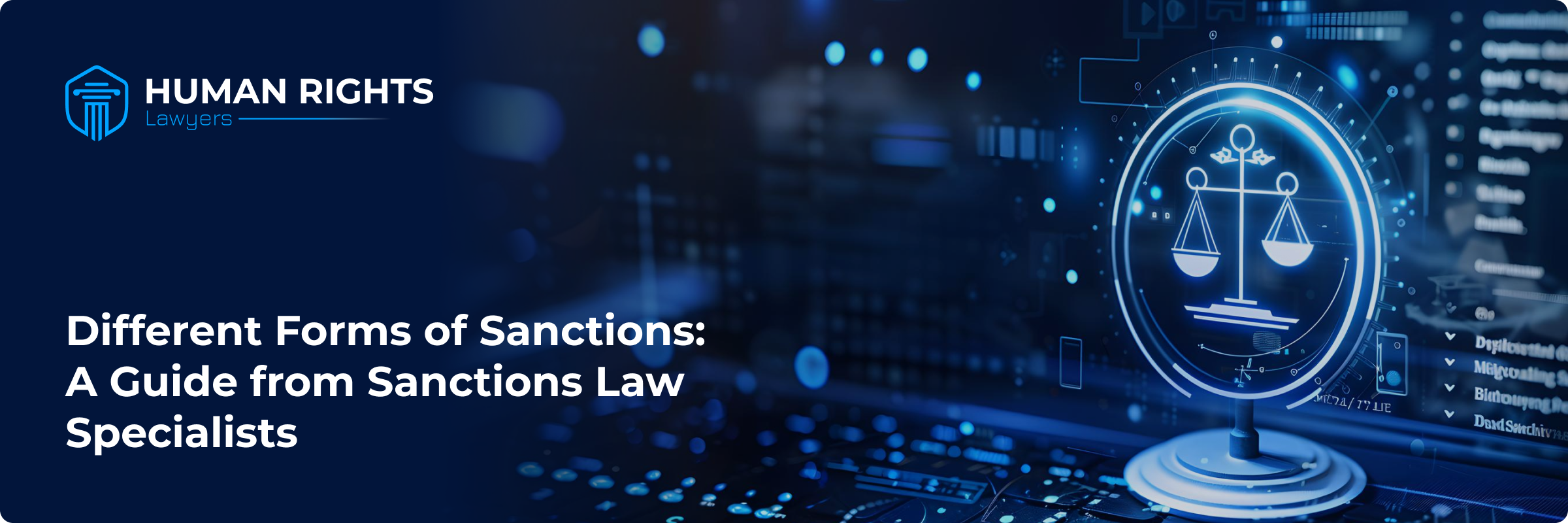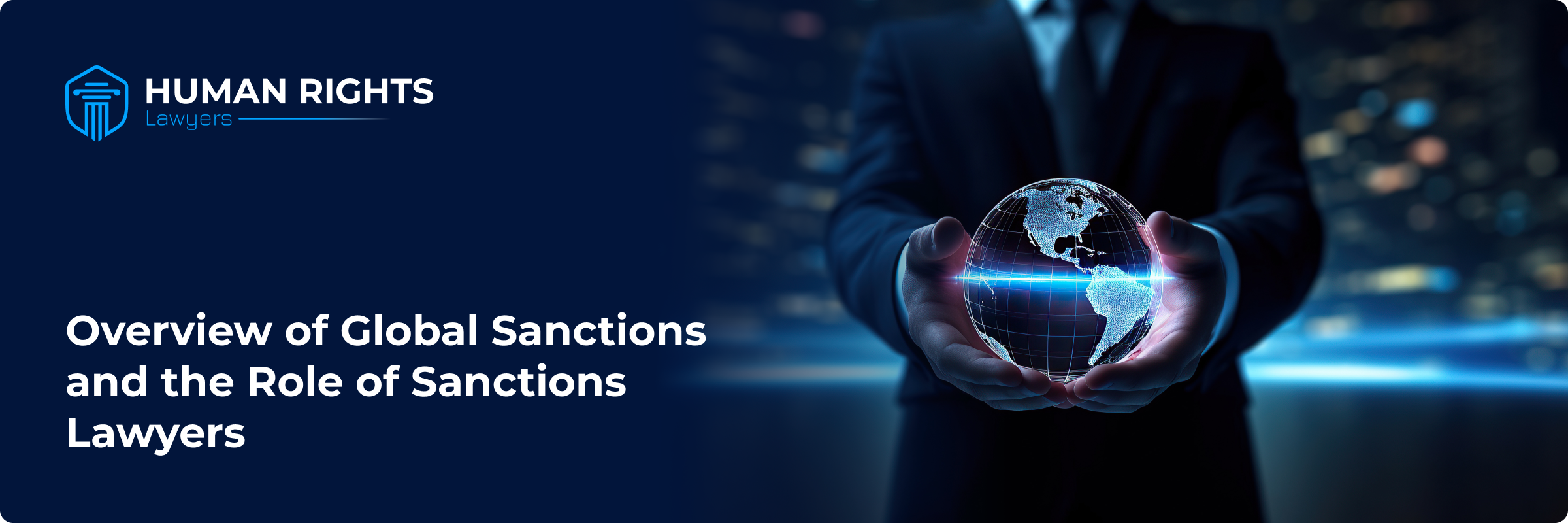Sanctions Lawyers
The legal team at the Collegium of International Lawyers comprehends the mechanisms of sanction proceedings and helps clients comply with the laws. We also assist clients in leveraging their legal framework to strengthen their position in the market and avoid any unnecessary delay that may result from non-compliance.
In a world where business rules are set in the halls of government offices and international organizations, sanctions and economic controls play a critical role in the success and survival of a company. If your business operates at an international level, you will need to avoid the limitations imposed by export restrictions and sanction regimes.
Who Does OFAC Regulate?
OFAC oversees people and organizations to prevent violations of U.S. sanctions in financial transactions. Its oversight includes:
- Individuals: U.S. citizens and green-card holders, regardless of location;
- Entities: companies incorporated in the U.S., including their foreign branches and subsidiaries;
- Any person in the U.S.: regardless of citizenship or country of origin.
OFAC is responsible for imposing and enforcing sanctions against states, terrorist organizations, international drug cartels, and other groups that pose a threat to U.S. security or interests. OFAC sanctions can include freezing assets, prohibiting financial transactions, and restricting access to U.S. financial markets.
Often OFAC does not monitor people about organizations in other countries, but there are exceptions. If individuals and companies engage in transactions with sanctioned entities, they face negative legal consequences.
In addition, OFAC may impose secondary sanctions. This means that foreign organizations and individuals will be penalized for cooperating with sanctioned entities, even if there is no direct connection to the United States. Therefore, entities outside the U.S. will be penalized for violating U.S. sanctions.
Exploring the Nuances of Sanctions Law with Top Sanctions Lawyers
In a world where legal mistakes can cost you your reputation and business, you’ll need a partner who understands sanctions laws and enforcement matters. However, the experts at the Collegium of International Lawyers provide more than just legal support.
We offer compliance strategies on the sanctions imposed by different authorities including the Office of Foreign Assets Control (OFAC), the European Union, the United Nations, and the United Kingdom. Our lawyers work with you to develop unique sanctions compliance policies under the existing law, helping to strengthen your business and avoid violations.
Understanding the Role of Sanctions in International Law
In international law, sanctions are key instruments used by countries and international bodies to uphold global order and enforce laws. These instruments come in different forms and be applied to countries, individuals, or legal entities responsible for violations like terrorism, financing terrorists, war crimes, drug trafficking, and human rights violations.
But while different authorities try to coordinate their efforts, the sanctions laws don’t always align in different jurisdictions. However, imposing sanctions on legal groups and individuals often leads to economic restrictions, travel bans, trial court proceedings, and more.
What Are the Impacts of Economic Sanctions?
Economic sanctions are pressure tools that countries use to influence other states. They affect all areas of the economy, trade, investment, access to finance and economic development.
Sanctions can restrict exports and imports of goods and services, resulting in reduced trade relations between countries. For example, if there is a ban on technology imports, a country will have difficulty developing its own industry. Thus, organizations lose the ability to sell their goods in international markets, which subsequently reduces their profits.
The fact that there are restrictions in place can lead to a reduction in the inflow of capital into the country. This fact scares away investors and they will not be willing to invest.
In addition, another lever of sanctions – blocking of financial transactions and freezing of assets – can hinder access to international finance. In this case, banks and organizations cannot make payments, receive loans and use their own funds abroad.
The decline in trade and investment has a negative impact on the economy as a whole. Increased unemployment, lower production and reduced government revenues can lead to a deterioration in living standards. Long-term sanctions may slow down technological development and reduce the country’s competitiveness in the global arena.
Specific examples
- Asset freeze. When the assets of companies or individuals are frozen, they lose access to their funds abroad. This prevents them from investing and conducting international transactions;
- Export/import bans. Restrictions on oil exports can deprive a country of a major source of income. Bans on imports of medicines can negatively affect health care.
- Blocking of financial transactions. Disconnection from international payment systems such as SWIFT makes cross-border payments impossible. This hampers trade and financial transactions.
Economic sanctions have a serious impact on both large and small companies. International corporations may face loss of access to markets and resources. For example, industries may experience shortages of components if their suppliers are under sanctions. Smaller enterprises are most vulnerable. They may not be able to purchase materials or sell them abroad, leading to reduced production or complete closure.
Types of Sanctions and Their Effects from a Sanctions Law Expert
Sanctions are generally of two kinds: comprehensive sanctions affecting entire nations, and targeted or ‘smart’ sanctions aimed at specific individuals or entities. Their impact is extensive, influencing not only the direct targets but also international businesses and individuals involved with them.
Different Forms of Sanctions: A Guide from Sanctions Law Specialists
Sanctions vary in form, aligning with the goals of the imposing party and the nature of the targeted behavior. Common types include:
1. Economic Sanctions: Limiting economic activities like trade, investment, and specific transactions.
2. Diplomatic Sanctions: Reducing or severing diplomatic ties, including expelling diplomats or restricting diplomatic privileges.
3. Military Sanctions: Utilizing military force or threats, including arms embargoes.
4. Sporting Sanctions: Prohibiting athletes from international events.
5. Cultural Sanctions: Limiting cultural exchanges and activities, like banning participation in global cultural events.
6. Travel Sanctions: Restricting travel, targeting individuals or all citizens of a country.
7. Financial Sanctions: Imposing restrictions on financial transactions and access to global financial systems.
8. Sectoral Sanctions: Targeting specific sectors like energy, finance, or defense.
9. Targeted or ‘Smart’ Sanctions: Focusing on specific individuals, entities, or activities, minimizing impact on civilians.
10. Comprehensive Sanctions: Broad sanctions impacting an entire country, combining various sanction types.
For businesses operating internationally, grasping these sanctions types and their potential effects is imperative for compliance and strategic planning.
The general concept of sanctions and sanctions lawyers
Term Definition:
Sanctions – A set of measures taken by a government or group of governments against another country, entity or individual, in response to behavior that is considered to be a violation of international law, human rights or other norms of international behavior. The sanction imposed can include trade restrictions, travel bans, asset freezes, and other economic measures.
Sanctions Lawyer – A legal professional with extensive experience advising clients on sanctions-related matters, including compliance with sanctions regimes and defending against sanctions violations. Sanctions lawyers may work for law firms, government agencies, or in-house for companies subject to sanctions.
Compliance – Sanctions lawyers advise clients on how to comply with sanctions laws and regulations, which can be complex and vary between different jurisdictions. They may also provide training to clients on sanctions compliance and help to develop compliance programs.
Risk Assessment – Sanctions lawyers may conduct risk assessments to identify potential sanctions risks for their clients, such as dealing with sanctioned entities or individuals or engaging in activities that may be prohibited under sanctions regimes. They may also advise on the potential consequences of sanctions violations, including penalties and reputational damage.
Investigations and Enforcement – If a client is subject to sanctions enforcement actions, sanctions lawyers may assist in conducting internal investigations to identify potential violations, and represent clients in enforcement proceedings. They may also help clients to negotiate with enforcement authorities and seek to mitigate potential penalties.
Policy Advocacy – Sanctions lawyers may also engage in policy advocacy, including lobbying for changes to sanctions regimes or advising governments on the development of sanctions policies.
The specific scope of sanctions laws and regulations, and the role of sanctions lawyers, can vary depending on the jurisdiction and specific circumstances of a case.
Sanctions Law Firm: Our Expertise
At Sanctions Lawyers, we specialize in guiding clients through the intricate field of sanctions law. Our offerings include:
Guidance on Sanctions Regulation Compliance
Compliance with sanctions legislation is essential to staying compliant and preserving a company’s reputation. Our experienced team of lawyers offers in-depth advice on compliance with these regulations, helping companies understand their obligations and develop effective compliance strategies.
Assistance with Sanctions Investigations
Facing a sanctions investigation can be daunting. Our skilled lawyers are well-versed in managing such investigations, offering support from the initial stages to the final outcomes. We assist clients in preparing for potential probes, responding aptly to inquiries, and negotiating with regulatory bodies as needed.
Expertise in Sanctions and Export Controls
Sanctions are often coupled with export controls, which oversee the international movement of goods, technology, and services. Our attorneys possess deep knowledge in this area, advising businesses on adherence to these controls while pursuing their commercial goals. We guide clients on relevant export control regulations, assist in securing necessary licenses, and help develop solid internal controls for sustained compliance.
At Human Rights Lawyers, we recognize the uniqueness of each client’s circumstances. Our services are customized to address your specific requirements, offering practical and effective solutions to the complexities of international sanctions law. Whether it involves consulting on a particular transaction, responding to a sanctions inquiry, or enhancing your company’s compliance program, our team is ready to provide assistance.
Overview of Global Sanctions and the Role of Sanctions Lawyers
Sanctions are critical tools in international diplomacy, and with their global prevalence, it’s crucial for financial institutions to understand their responsibilities and the applicable sanctions. Key global sanction programs include:
1. UN Sanctions
– The United Nations issues a comprehensive list of sanctioned individuals and entities, mandatory for all member states.
– Sanctions are passed by the United Nations Security Council (UNSC) through majority votes, including its five permanent members (the US, China, France, the UK, Russia) and ten rotating non-permanent members.
– The UN relies on member nations to implement these sanctions domestically.
– The United Nations typically impose sanctions for human rights violations, internal violence, or threats to international peace.
2. EU Sanctions
– The European Union enforces various economic sanctions, following both UN guidelines and independent EU policies.
– All EU citizens globally must comply with these sanctions, which are integrated into EU law.
– The EU sanctions aim to uphold democratic values, international law, and global peace.
3. UK Sanctions
– Post-Brexit, the UK enforces sanctions through the HM Treasury, including UN, EU, and independent UK sanctions.
– The Office of Financial Sanctions Implementation manages these sanctions, applicable to all British citizens worldwide.
4. China’s MOFCOM Sanctions
– In response to international dynamics like the US-China trade war, China’s Ministry of Commerce (MOFCOM) has introduced sanctions, including the Unreliable Entity List.
– These sanctions are governed by China’s Foreign Trade and National Security laws, and include measures against compliance with foreign sanctions.
5. Australia’s DFAT Sanctions
– Australia’s Department of Foreign Affairs and Trade (DFAT) enforces sanctions that align with the UN and additional Australian-specific measures.
– These sanctions are global in scope, impacting Australian citizens and entities worldwide.
6. Canada’s SEMA Sanctions
– Canada upholds sanctions under the Special Economic Measures Act (SEMA), aligning with UN standards and focusing on human rights.
– Canadian sanctions, influential in North America, have been notably applied in situations like the Russian-Ukraine conflict.
7. US OFAC Sanctions
– The Office of Financial Assets Control (OFAC), an agency under the United States Department of Treasury, administers US sanctions that impact individuals and groups in their jurisdiction.
– The US sanctions program, particularly influential globally, includes comprehensive national sanctions and targeted measures like the Magnitsky Act.
Sanctions lawyers play a pivotal role in guiding businesses through the complexities of these sanctions. They help organizations understand obligations, stay updated on changing regulations, and provide legal assistance in cases of non-compliance or investigations. With the dynamic nature of international relations, such as the recent Russia sanctions, the expertise of a sanctions lawyer is increasingly valuable for companies engaged in international trade.






